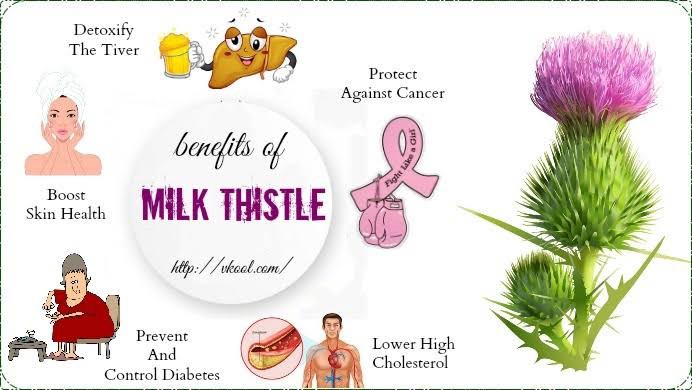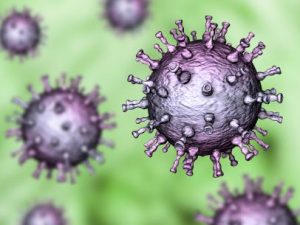Milk thistle (silymarin) is a flowering herb related to the daisy and ragweed family. It is native to Mediterranean countries. Some people also call it Mary thistle and holy thistle. Read Pritish Halder article to enhance your knowledge about Silymarin.

Milk Thistle
What Is Milk Thistle Used For?
People have traditionally used milk thistle for problems with the liver and gallbladder . Experts believe silymarin is the primary active ingredient of the herb. Silymarin is an antioxidant compound taken from milk thistle seeds. It’s unclear what benefits, if any, it may have in the body, but it’s sometimes used as a natural treatment for things including cirrhosis, jaundice, hepatitis, and gallbladder disorders.

Milk Thistle Use
Some claim milk thistle may also:
- Provide heart benefits by lowering cholesterol levels
- Help diabetes in people who have type 2 diabetes and cirrhosis
Is Milk Thistle Good for the Liver?
There’s conflicting research on the benefits of milk thistle for liver health.

Milk Thistle Good for the Liver
It may have protective effects on the liver, preventing damage. There’s some evidence that milk thistle can treat cirrhosis and chronic hepatitis, which can be caused by alcohol abuse, autoimmune disease, or viruses. But experts say that the evidence isn’t conclusive.
Some studies also show milk thistle may help people whose liver is damaged by industrial toxins, such as toluene and xylene.
There is not enough scientific data to say whether or not milk thistle can help liver problems. Get the facts on milk thistle for the liver.
Can Milk Thistle Help People With Diabetes?

Milk Thistle Help People With Diabetes
Medical research suggests that milk thistle, combined with traditional treatment, can improve diabetes. Studies have shown a decrease in blood sugar levels and an improvement in cholesterol in people with type 2 diabetes.
Researchers also have found that milk thistle improved insulin resistance, a key part of type 2 diabetes.
Talk to your doctor before taking any supplements because they might interfere with your medication. Learn more about natural remedies for type 2 diabetes.
Is Milk Thistle Good for the Heart?
By lowering LDL “bad” cholesterol levels, milk thistle may lower the chance of developing heart disease. But studies on heart benefits have only been done in people with diabetes. People with diabetes often have high cholesterol. It’s unclear if milk thistle has the same effects in people without diabetes.
Milk thistle can also be taken with cholesterol-lowering medications, like statins. It can help prevent elevation of liver enzymes, which can be a side effect of the medication. Find out more on the side effects of statins.
How Much Milk Thistle Should You Take?
The best doses of milk thistle have not been established for any condition it may be used to treat. Quality and active ingredients in supplements may vary widely from maker to maker. This makes it very hard to establish a standard dose. Ask your doctor for advice.
Can You Get Milk Thistle Naturally From Foods?
People sometimes eat the stem and leaves of milk thistle in salads. There are no other food sources of this herb.
What Are the Risks of Taking Milk Thistle?
Risks. Milk thistle can trigger allergic reactions. People who are allergic to artichokes, kiwi, ragweed, daisies, marigolds, and chrysanthemums are at higher risk. People who have diabetes or endometriosis should check with a doctor before using milk thistle.

Risks and side effects Milk Thistle
While milk thistle has been traditionally used in pregnant and breastfeeding women, its safety is unknown. If you’re pregnant or breastfeeding, check with your doctor before using milk thistle. Milk thistle is not recommended for children.
Side effects. Milk thistle seems to have few side effects, even when taken for several years. Some people have nausea, diarrhea, itching, and bloating.
Interactions. If you take any medicines regularly, talk to your doctor before you start using milk thistle. It could interact with many drugs, including some that treat high cholesterol, infections, insomnia, and blood pressure. Since milk thistle may lower blood sugar, people with diabetes should check with their doctor before taking the herb as it may make their blood sugar fall too low.
Who Should Not Take Milk Thistle?
Milk thistle is not safe for everyone. Some people may be allergic to milk thistle. If you have a ragweed allergy or are allergic to certain flowers such as daisies, marigolds, or chrysanthemums, you should not take milk thistle.
You should avoid milk thistle if you are pregnant or breastfeeding. This is because there isn’t enough data to know for sure whether it is safe for your baby. Don’t take milk thistle if you’ve had prostate cancer, breast cancer, uterine cancer, or any other hormone-related cancer.
Dosage and Preparation
There are no guidelines directing the appropriate use of milk thistle. Milk thistle supplements are commonly sold as in capsule form but are also available as tablets, tea bags, and liquid extracts. Doses

Milk Thistle capsules
range from 175 milligrams to 1,000 milligrams.
Milk thistle is considered safe to take daily at doses of 150 to 175 mg, three times a day.9 Generally speaking, the higher the dose, the greater the risk of side effects.
Combination remedies such as Iberogast drops (used to treat dyspepsia) and Barberol tablets (formulated for diabetics) are considered effective with milk thistle doses of 10 milligrams and 210 milligrams, respectively. Higher doses don’t necessarily correspond to better results.
Dietary supplements containing milk thistle are sold in natural foods stores, drugstores, and stores specializing in herbal products. You can also purchase milk thistle products online.
What to Look For
Dietary supplements in the United States do not need to undergo the rigorous testing and research and testing that pharmaceutical drugs do. Because of this, the quality can vary from one supplement to the next.
To ensure quality and safety, choose products that have undergone testing and certification by an independent certifying body like the U.S. Pharmacopeia (USP), ConsumerLab, and NSF International. As an added layer of safety, opt for brands that have been certified organic under the regulations of the U.S. Department of Agriculture (USDA).
By contrast, fungal contamination is rare in milk thistle tea bags, extracts, capsules, tablets, and soft gels.










